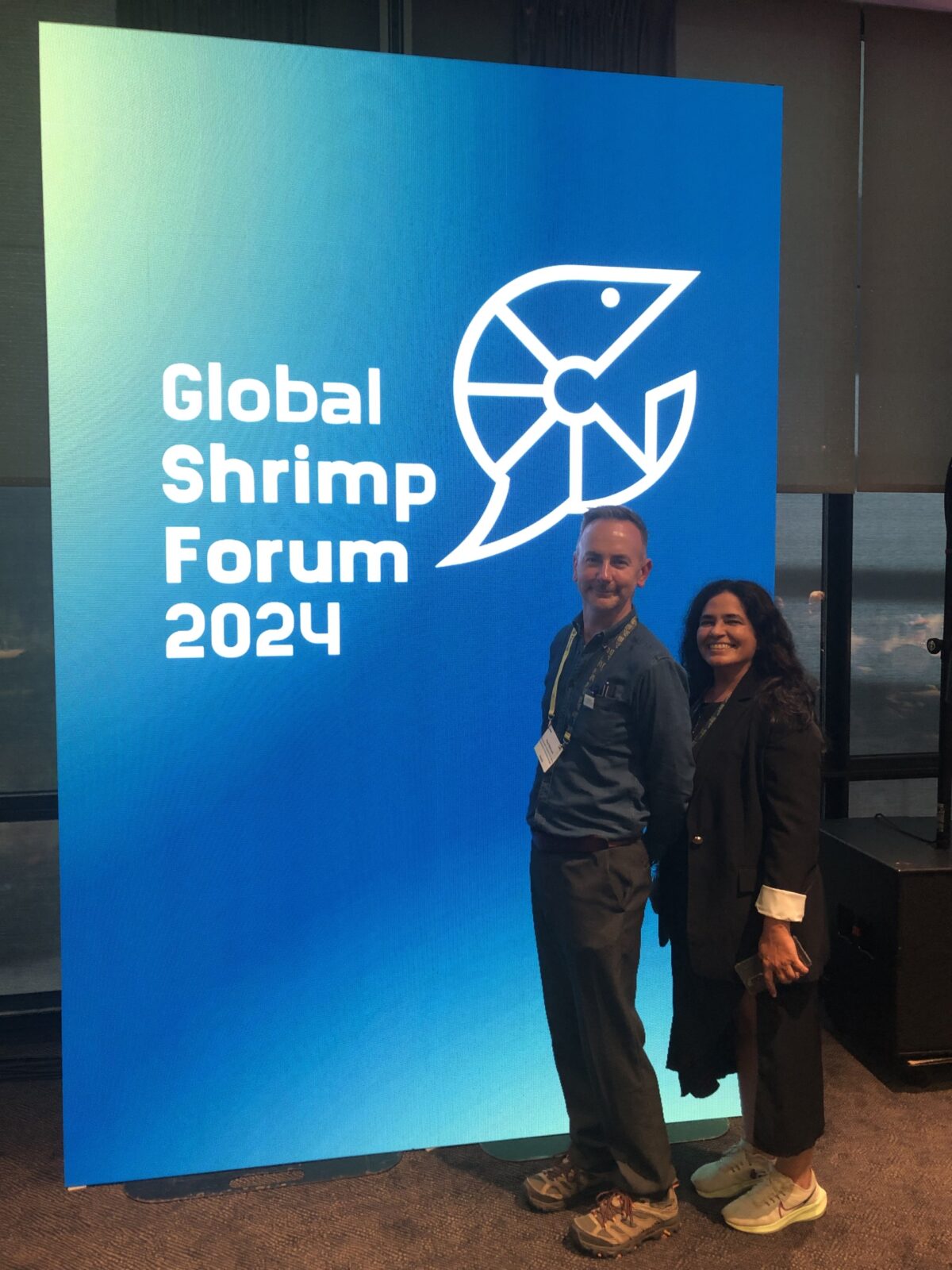During a session at the 2024 Global Shrimp Forum in Utrecht, the Netherlands, SFP Aquaculture Information Manager Paul Bulcock pitched our plans to build a foundation for landscape-level improvements in Indian shrimp. Along with Global Markets Deputy Director/Advisory Services Director Mercedes Mendoza, Bulcock discussed SFP’s efforts to build a framework for ecosystem aquaculture in Andhra Pradesh, India, one that encompasses industry, nature, and people.
Bulcock made his pitch as one of several projects that were presented at a GSF side event, Supply Chains and Continuous Improvement. Following the pitch session, breakout group discussions enabled SFP to connect with and elicit feedback from shrimp farming experts, particularly those with expertise in social issues.
Key points from the discussion included:
- There are important questions to be answered about how to bring a diverse array of stakeholders, including independent farmers, communities, and other resource users together.
- Aquaculture management is a process, one that needs to build trust. Projects should not go in with a fixed agenda, but instead build upon the priorities of farmers and their communities.
- Projects should marry the priorities of farmers and communities, build upon existing structures (including those for sharing information), and develop a one-line selling point. Crucially, any project should tackle issues that stakeholders both want and are committed to improving – as this will determine the level of engagement in the project and the formation of project champions.
Elsewhere at the Forum, SFP was extremely interested to learn more about the activities of Lenk Frozen Foods and Luna Shrimp Farms under the Aquaculture Stewardship Council (ASC) Improver Programme. This project aims to bring together about 1,400 small-scale black tiger prawn farmers in Bangladesh to improve their farming practices in an area adjacent to the Sundarbans – a World Heritage Site and the largest mangrove area in the world. This area is one of the last strongholds of the Royal Bengal Tiger. In effect, this is nature- (and tiger-) friendly tiger prawn farming.

